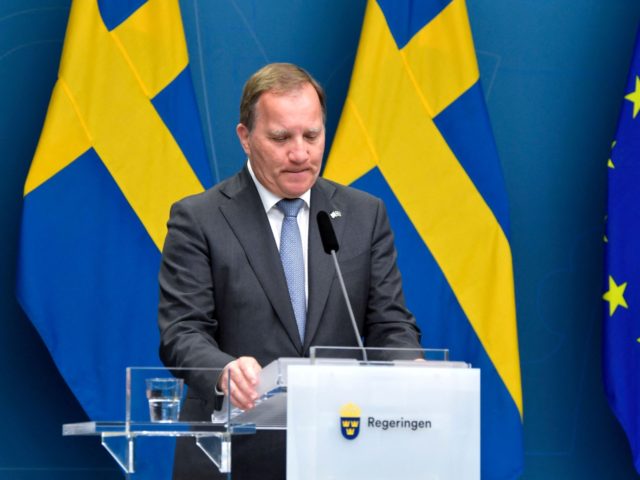The Swedish parliament has passed its first-ever motion of non-confidence in the Social Democrat-led minority government, giving Prime Minister Stefan Löfven the choice to resign or call fresh elections.
Prime Minister Löfven has a week to either resign as Prime Minister or call a new national election after 181 members of the Swedish parliament voted in favour of a motion of non-confidence, while 109 voted against and 51 MPs abstained.
An hour after the vote, which has put the government into a crisis, Löfven told reporters that it would be difficult to reorganise and get enough parties willing to work together to form a new government, broadcaster SVT reports.
“The government now has a week. We will talk to our partner parties and ponder in different constellations which way to go. My main focus has always been, is and will be to do what is best for Sweden,” Löfven said.
The broadcaster notes that if parties cannot come to an agreement to form a new government, then a snap election must be held three months after its announcement, placing September as the likely month for a new national election.
However, the scheduled September 2022 election will also take place regardless of the outcome of today’s events as Sweden has fixed terms of office and extraordinary elections have no impact on the fixed election dates. COnsequently, Sweden is about to enter the churn and potential instability of 15 months of non-stop election campaigning for two back-to-back nationwide votes.
The no-confidence vote came after the Left Party, a former supporter of the minority government, clashed with the Social Democrats over rent issues involving newly built apartments.
The Social Democrats, along with the Centre Party and the Liberals, supported allowing property owners to charge free-market rents, charging the amount people were willing to pay and have landlords and tenants negotiate directly, rather than negotiations go through a representative, which experts argued made it less profitable to build and rent apartments.
“For a long time it looked like the minority government would make it until the end of the term, but the built-in divisions in the government’s base have finally become too big,” political commentator Mats Knutson said.
Populist Sweden Democrats leader Jimmie Akesson commented on the aftermath of the historic vote saying he thought fresh elections may be needed.
“Now it’s Stefan Löfven who has the ball, he is the one who decides what the next step will be. If he intends to call extra elections, he has the right to do so,” he said.
“I think it may be necessary. It was not very easy to form a government last time and now it looks even more difficult,” Åkesson said, referring to the 2018 election, which took four months to see a government formed.
Should a new election be called, it could see a boost in support for the Sweden Democrats, who currently poll at just over 20 per cent, according to a poll released earlier this month by polling firm Sifo.
The centre-right Moderates, who have expressed support to work with the populists in a potential new government, scored 22 per cent.

COMMENTS
Please let us know if you're having issues with commenting.